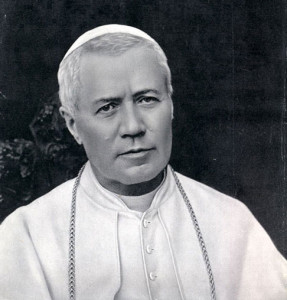A Funny Thing Happened to the Zeitgeist (the Spirit of the Times) Rolling Through the Synod in Rome. The Engine of Modernity seemed to be in gear, ready to bring about a salutary change, in softening the rigidity of the Church on the matter of marriage and divorce.
Cardinal Walter Kasper had revived the movement in 2014 to ease the discipline of the Church on the question of admitting to Holy Communion those who had been divorced and then remarried in civil ceremonies. The German bishops clustered about Kasper seemed to form the party of change within the Synod. And they proved to be quite tenacious, as the “spirit of the age” encountered a resistance far more formidable than the Kasperites had evidently anticipated.
The turning point seemed to come in a speech by the Hungarian Cardinal Peter Erdö. He would not have the question of marriage seen through the “signs of the times.” As my friend George Weigel put it, he would have the signs of the times “read through the lens of divine revelation.”
Erdö’s speech cast the question anew, and rightly, and tilted the playing field. The Kasperites had to keep falling back, in one maneuver after another. The fascination, for this viewer at least, was how these bishops, so welcoming of the “new,” would find themselves backing into some of the most venerable fallacies as they sought to salvage their position.
And so one of the first lines of retreat was to offer a species of federalism – to give the Catholics clustered in different nations the freedom to make an accommodation to the local ethos. In the strictest sense, “federalism” meant a Confederation, a loose joining of independent States, each State preserving its own sovereignty. The modified version in America contained a wide latitude for policies in the separate States marking off striking differences in the moral character of local communities.
But from the very beginning it was understood that the local variances would be contained within an integrated national polity, a republic, and one of the commitments of that Union was to preserve, in the separate States, a republican form of government. There would be no monarchies acceptable for the separate States.
The Founders were also acutely aware of “tyrannical” local majorities that would do such things as cancel debts, confiscate property, and in various ways turn themselves into local mobs. There were critical times when a decent polity would require the intervention of a more distant central authority, not under the thumb of those local majorities.

As the matter arose at the Synod, the bishops were well aware that in Germany, Austria, Switzerland, and Belgium, there was already taking hold a willingness to offer Communion to those who were divorced and civilly remarried. To choose the “option” of federalism was to take a gentle step on the path toward dismantling a church Catholic and turning it into another nominal Christian church, with the theology shifting by countries, counties, and parishes. And for that ordinary Catholic parishioner, one of the stable points of assurance was that the theology in his church was not going to be altered by the local majority.
The Kasperites retreated then to a plea to respect individual “consciences.” But as John Paul II famously taught, “conscience,” rightly understood, was directed to a set of objective moral norms. It was not a tag line to summon respect for whatever people professed deeply to believe.
At the end, in an attempt to offer some gentle concession to the Kasperites, the Synod tentatively accepted a notion of “pastoral accompaniment” of the divorced and remarried. A settlement could be arrived at privately by the penitent and the confessor. This arrangement seemed to be more acceptable because it offered no explicit challenge and no denial of Catholic teaching.
And yet that may simply allow the ethic of the Church to be rescinded, case by case, in a de facto way, while preserving the façade of the teaching de jure. It’s a formula for dismantling the rules governing Catholic life without the need to acknowledge or justify the change.
But as we trace matters through in this way, the Kasperites seem to be tracing themselves back to the subtle fallacy that Pius X brought out so sharply in his critique of the Modernists in Pascendi Dominici Gregis (1907). The Holy Father remarked on the philosopher who “recognizes the reality of the divine as an object of faith,” but “this reality is not to be found by him but in the heart of the believer, as an object of feeling and affirmation.”
The Modernist believer will assert, in contrast, the “reality of the divine. . . quite independently of the person who believes it.” But where, he asked, does the Modernist find the ground of this assertion of belief? And the answer: “In the personal experience of the individual.” Everything is refracted through the experience and “religious sense” of the individual himself.
In this way, the reality of the divine is transmuted into a construction of the mind and imagination, and when reduced in that way, “every religion, even that of paganism, must be held to be true.”
The Kasperites begin, I’m sure, with a sympathy for the hurts of real people. But for the most benign motives they back themselves into fallacies running deep, and they displace the truth they have been called to sustain.















